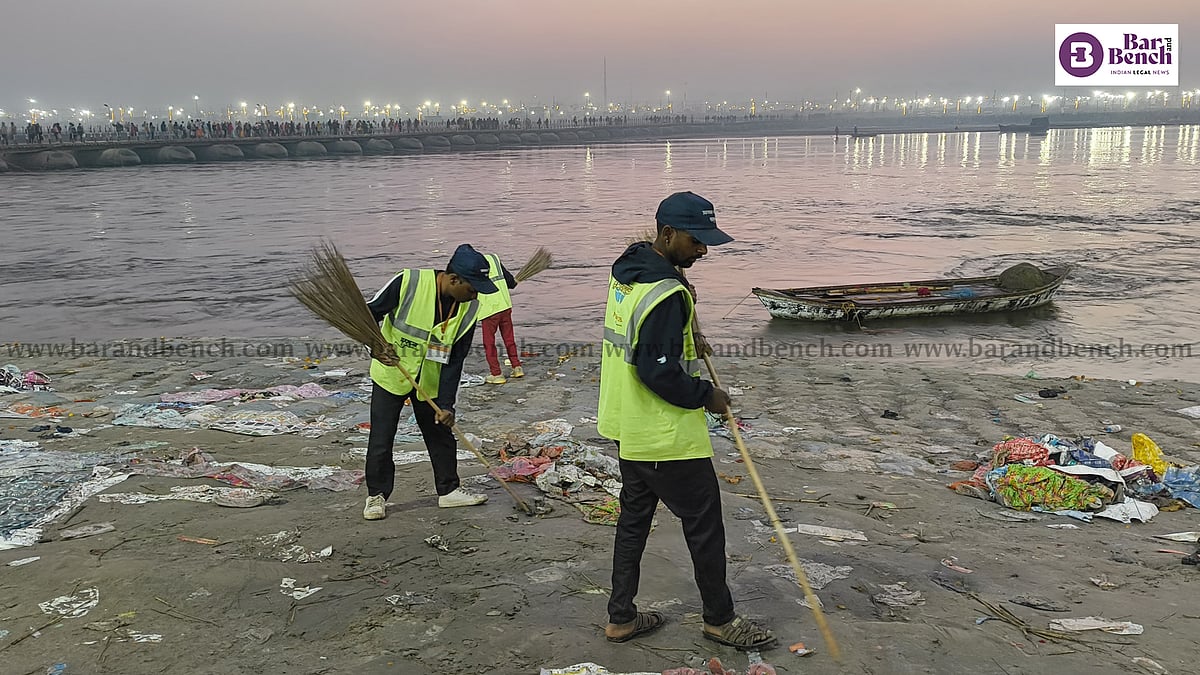 |
|
The National Green Tribunal (NGT) has issued a notice to the Uttar Pradesh government regarding allegations of widespread open defecation at the Maha Kumbh Mela. This significant environmental and public health concern highlights the challenges of managing sanitation during large-scale religious gatherings. The NGT's intervention underscores the importance of ensuring adequate sanitation facilities to protect both the environment and the health of pilgrims and local residents. The bench, comprising Chairperson Justice Prakash Shrivastava and Expert Member Dr. A Senthil Vel, has directed the authorities to submit their responses within a week, setting the stage for a crucial hearing on February 24th. The urgency of the matter is reflected in the NGT's prompt action, indicating a serious concern about the potential for environmental degradation and public health risks associated with open defecation on such a large scale.
The application filed with the NGT alleges that a lack of sufficient sanitation facilities forced lakhs of individuals and families to defecate openly on the banks of the River Ganga during the Maha Kumbh Mela. The severity of the situation is further emphasized by the inclusion of video evidence in the application, providing visual documentation of the alleged widespread open defecation. This visual evidence is crucial in supporting the claims made in the application and underscores the magnitude of the problem. The sheer number of people involved—lakhs—suggests a systemic failure in providing adequate sanitation infrastructure for such a massive gathering. The potential consequences of this failure extend beyond immediate health concerns, encompassing the long-term degradation of the River Ganga, a sacred river of immense ecological and cultural significance.
The NGT's response and the forthcoming hearing are of considerable importance, as they represent a direct challenge to the authorities responsible for managing sanitation at the Maha Kumbh Mela. The outcome will have implications not only for the immediate situation but also for future large-scale events. A strong response from the NGT could set a precedent for stricter enforcement of sanitation regulations at religious gatherings and other mass events. The case highlights the urgent need for proactive planning and implementation of adequate sanitation infrastructure to prevent similar situations in the future. The government's response will be closely scrutinized, with expectations for a detailed explanation of the circumstances leading to the alleged lack of facilities and a comprehensive plan to address the issue and prevent its recurrence.
The issue of open defecation, particularly in the context of the Maha Kumbh Mela, touches upon several crucial aspects of governance, public health, and environmental protection. The massive gathering of pilgrims presents unique logistical challenges in ensuring adequate sanitation, requiring meticulous planning and substantial resource allocation. The failure to meet these challenges underscores the need for improved coordination and collaboration between government agencies, religious organizations, and other stakeholders involved in organizing and managing such events. Effective solutions require a multifaceted approach, including infrastructure development, public awareness campaigns, and robust enforcement mechanisms.
The NGT's intervention underscores the significance of environmental protection and public health in the face of large-scale gatherings. The potential for environmental damage from untreated waste discharged into the River Ganga is significant, potentially impacting water quality, aquatic life, and human health. The public health risks associated with open defecation are well-documented, including the spread of waterborne diseases. The outcome of this case will have far-reaching implications, impacting not only the immediate situation but also shaping future approaches to sanitation management at major events and contributing to the broader goal of achieving Open Defecation Free (ODF) status in India. The legal proceedings will serve as a crucial test of the government's commitment to environmental protection and public well-being.
Source: NGT seeks response from UP over open defecation at Maha Kumbh Mela
